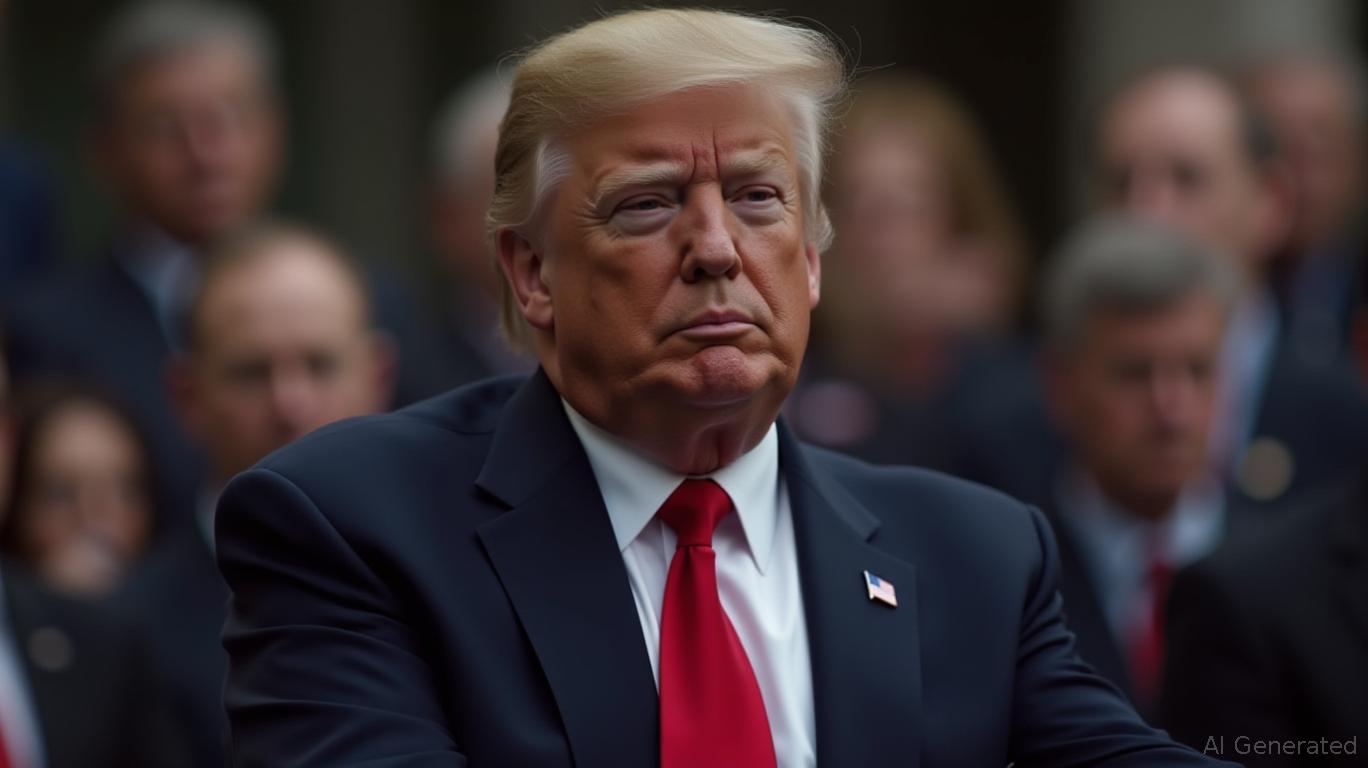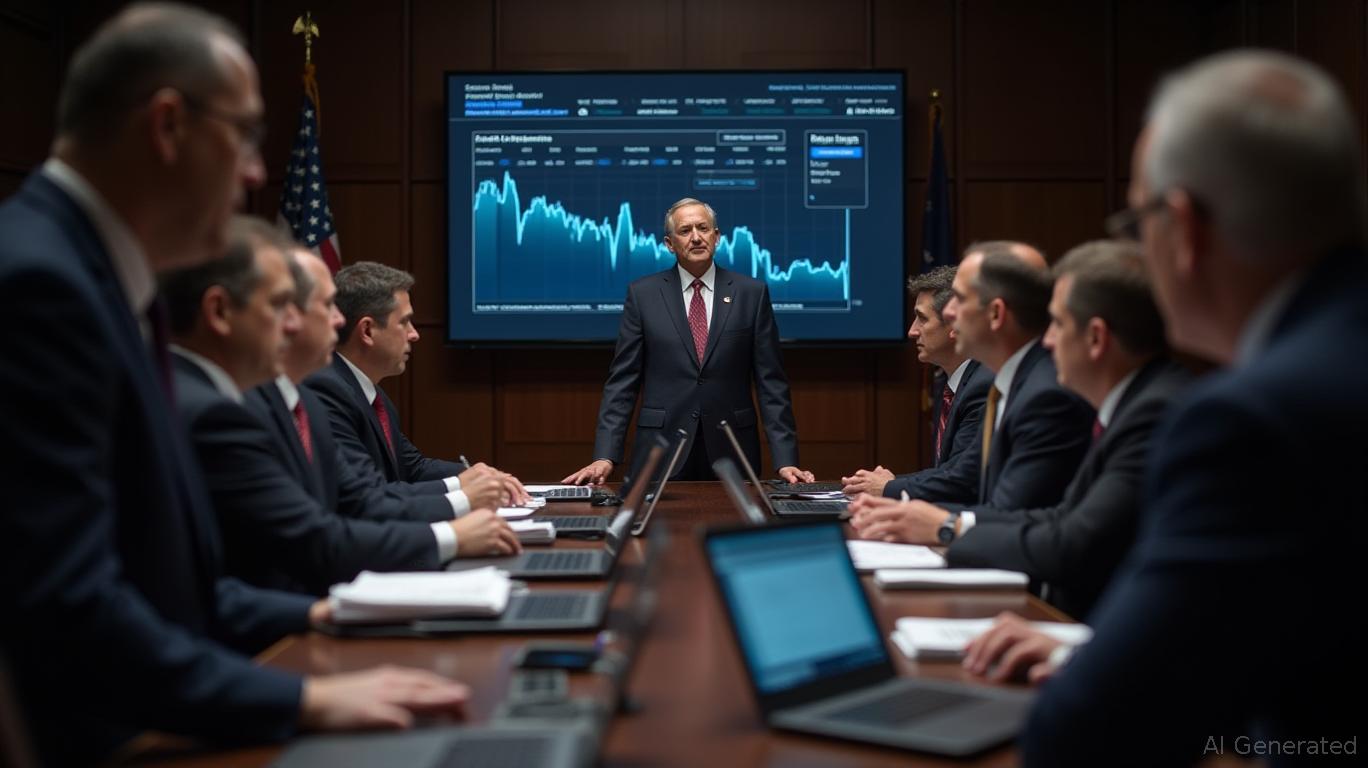NEAR Overturns Failed Ballot, Sparks Discussion on Governance
- NEAR Protocol reduced token inflation from 5% to 2.5% in October 2025, bypassing a failed August community vote that lacked 66.67% approval. - The change was enforced via a software upgrade requiring 80% validator adoption, triggering debate over governance integrity and developer authority. - Critics like Chorus One warned of centralized precedents, while supporters argued the cut addressed unsustainable economic imbalances in the network. - Market reactions were mixed, with NEAR's price dropping 8% ami
The
This reduction came after a complicated two-step voting procedure. The first stage, a community vote held in August 2025, failed to reach the necessary 66.67% approval, with only 89 validators (45% of those voting) backing the proposal, as reported by Brave New Coin. Despite this, the development team proceeded by including the change in a software update (nearcore v2.9.0), which required 80% of validators to upgrade to Protocol Version 81 for activation, according to

This move sparked strong backlash from key stakeholders. Chorus One, a staking provider overseeing $2.3 billion in assets, criticized the decision as setting a "dangerous precedent," claiming it compromised the integrity of governance by letting developers override a failed vote, according to Brave New Coin. The firm clarified that their objection was to the circumvention of community consensus, not the inflation reduction itself. On the other hand, backers such as DWF Labs—who had committed to purchasing 10 million NEAR tokens if the proposal succeeded—argued that the cut was essential for the protocol’s long-term health, as noted in the same report.
The dispute brings to light broader issues in blockchain governance. Although NEAR’s House of Stake system is designed to formalize economic choices, implementing the inflation cut through a validator software upgrade—rather than a community vote—raised concerns about decision-making authority and openness. CTO Bowen Wang supported the process, explaining that changes to economic parameters need consensus-level approval to maintain network unity, according to Brave New Coin. However, critics caution that such adaptability could undermine confidence in decentralized governance systems.
Market response was varied. Following the announcement, NEAR’s price dropped 8% to $2.10, though this reflected a wider decline in the cryptocurrency market. Experts are split on the long-term effects, with some comparing the move to Bitcoin’s halving events, where lower supply inflation has historically led to price increases, as observed by Brave New Coin.
As NEAR continues to balance governance challenges, the results may influence how other blockchain projects manage the tension between practical economic decisions and the foundational ideals of decentralization. This ongoing debate highlights a core issue in crypto: finding equilibrium between efficient decision-making and the decentralized ethos that many projects strive to uphold.
Disclaimer: The content of this article solely reflects the author's opinion and does not represent the platform in any capacity. This article is not intended to serve as a reference for making investment decisions.
You may also like
Solana News Update: Trump's Wallet Acquires Valor Token—Is This an Endorsement or a Tactical Move?
- Trump's crypto wallet adds 27.37M VALOR tokens, second-largest holding after 800M TRUMP tokens, signaling strategic portfolio shift. - Solana's 6% price drop and institutional selling contrast with Bitwise's $69M inflow into first U.S. Solana ETF, highlighting market volatility. - Trump's TRUMP token integration into debit cards and real estate projects underscores crypto's role in his political branding and financial strategy. - Mixed reactions to VALOR's inclusion question whether tokens were team-tran

SUI News Today: SUI Maintains Steady FFO Growth Amid Unlock Challenges as Market Fluctuations Approach
- Sun Communities (SUI) reported Q3 2025 core FFO of $2.28/share, exceeding guidance, driven by 5.4% NOI growth and 98% occupancy. - Raised 2025 FFO guidance to $6.59–$6.67/share, supported by 3.6x net debt/EBITDA leverage and $500M in stock repurchases at $125.74/share. - Evercore upgraded SUI to "Outperform" with $141 PT, citing strong capital structure, while institutional investments like Econ Financial's $286K stake signal growing confidence. - Upcoming $103M token unlock and 5.1% monthly stock declin

Shutdown Slows Data Releases, Obscuring Fed’s December Rate Decision
- Fed Chair Powell warns December rate cut is "challenging" due to economic uncertainties and delayed data from the government shutdown. - Markets expect a 90% chance of a 25-basis-point cut, but analysts highlight risks from prolonged shutdowns and volatile economic conditions. - Trump's shortlisted Fed chair replacements add political uncertainty, complicating the central bank's policy trajectory amid shifting economic signals. - The four-week shutdown has caused $15-30 billion weekly losses, raising fea

Fed Policy Divide: Logan Opposes Rate Reductions, Emphasizes the Importance of Curbing Inflation
- Dallas Fed President Lorie Logan opposes recent rate cuts, arguing economic conditions don't justify reductions despite the Fed's 3.75%-4.00% policy rate cut. - She highlights a "broadly in equilibrium" labor market and persistently high inflation above 2%, warning preemptive cuts risk undermining inflation control efforts. - Logan advocates patience for inflation progress, contrasting with Chair Powell's caution against labor market slowdowns, reflecting a broader Fed policy divide. - She supports endin
